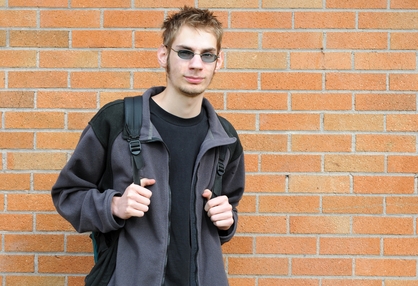


VANCOUVER – A third year political science student at the University of British Columbia is certain that the recent terrorist attack at a mall in Nairobi would have been resolved faster and resulted in less casualties had he been in charge of the response.
“Fifteen terrorists with military grade weapons is pretty powerful,” said Brandon Riggs as he skimmed through a copy of The Economist in the house he shares with four other students. “But so is Habermas’ theory of communicative rationality. They wouldn’t have seen that coming.”
Riggs iterated that his recent reading of Machiavelli and Waltz combined with his extensive operational knowledge gleaned from Clausewitz would have allowed him to negotiate with and then promptly take down the heavily armed Islamic extremists.
“The authorities had time and control of the location, but failed to use those things to their advantage,” stated the aspiring tactician as he grabbed a pizza pocket and settled in for an episode of Vice TV. “It’s one thing to storm the place and shoot the terrorists with commandos, but I think a more strategic maneuver would have been to employ rational actor theory, and convince each individual terrorist that they were not acting in their own best interest.”
Riggs describes himself as a constructivist when it comes to hostage situations. “They’re what you make of ‘em,” he said.
Riggs’ self-assuredness that he could have done significantly better than Kenyan officials in solving the crisis has provoked strong criticism from his roommate Todd.
“As a postmodernist, I find his claims to be preposterous. There’s no way to determine if this so-called hostage crisis is even real,” Todd rebutted before continuing to read the recent edition of Adbusters.

